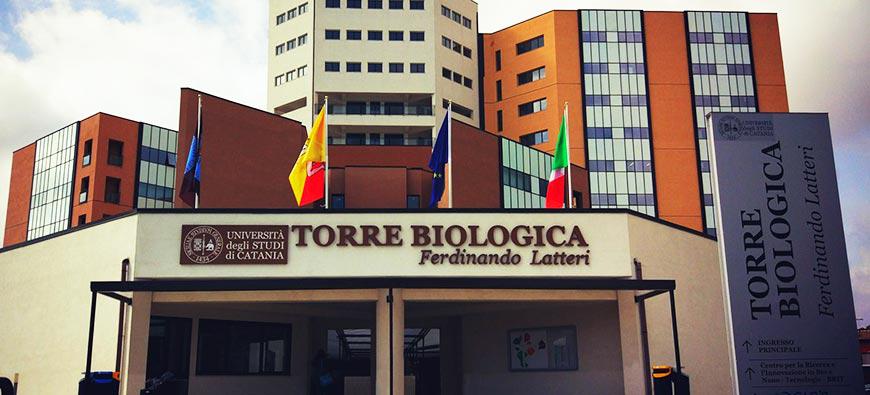Course Overview

The CdS in Biotechnology (L-2) proposes the training of graduates capable of inserting themselves at various levels in the research and production processes typical of the sector. The planned training course, consistently with the degree class, is articulated by developing different areas: industrial bio, medical, agricultural and pharmaceutical. The following areas are developed: knowledge of the agrosystems, their characteristics and needs in the production phase and their interaction with the other components, in particular with the soil; specific skills related to herbaceous, vegetable and arboreal crops; application of modern biotechnology applied to the breeding and propagation of the above species; knowledge of the problems of defense against pathogens and pests that can occur in the cultivation phase, with the application of a biotechnological approach that can contribute to their sustainable defense; competence on food technologies and microbiology applied to the conservation and transformation of agricultural products; skills in the morphological and functional aspects of the human body; in the application of basic techniques for the study of antibiotics, antibodies, recombinant and non-recombinant vaccines; basic biochemical and molecular diagnostic methods and global analysis of nucleic acids and proteins; in medical genetics; in pathology; in the treatment of biological samples and the main laboratory tests to obtain information relating to metabolic conditions, biochemical-genetic characteristics and pathologies useful for preventing, diagnosing, monitoring or treating a state of disease; in understanding the parasite host relationship in pathogenesis and diagnosis; knowledge of cellular molecular mechanisms; pharmacological and pharmaceutical skills in drug design and delivery of biotechnological drugs; bioinformatics skills, high-throughput technologies and fermentation biotechnology.
The didactic activities are organized in a first 1st municipality, in which the student will deal with basic training activities, such as mathematical, computer science, physical, chemical, biological, genetics and agricultural genetics, and disciplines "for regulation, economics and bioethics ". In the 2nd year, common training continues with the remaining basic disciplines, accompanied by characterizing disciplines belonging to the common biotechnological disciplines (such as biochemistry, molecular biology, physiology, hygiene) and the courses begin with the teachings belonging to the specific sectors. In the 3rd year, both common and specialized training are completed, with the disciplines included in the areas with specific agricultural, biological and industrial, chemical and pharmaceutical, medical and therapeutic purposes; in the 3rd year of the course, the student must also choose the training activities for the related optional credits, carry out the internship (training and orientation) and take the final test, consisting of the discussion, in Italian or English, of an elaborate concerning an experimental activity.
The training course was built in order to acquire knowledge and skills that can be immediately spent in the world of work: in fact, the courses are specifically aimed at making the student achieve the class's educational objectives, in particular the ability to apply innovative biotechnology, starting from those that are the application sectors of the biotech industries and the ability to continuously update, indispensable in a sector characterized by a rapid increase in scientific knowledge, the three-year graduate in biotechnology will be able to play technical-scientific operational and managerial roles in the field of basic research , medical-diagnostic, agricultural-environmental, pharmaceutical, in bio-industrial production and in the various transformation processes connected to them.
The qualification acquired allows further training courses through access to the second cycle degree courses both already present in the training offer of this university and to second cycle degree courses of other universities.